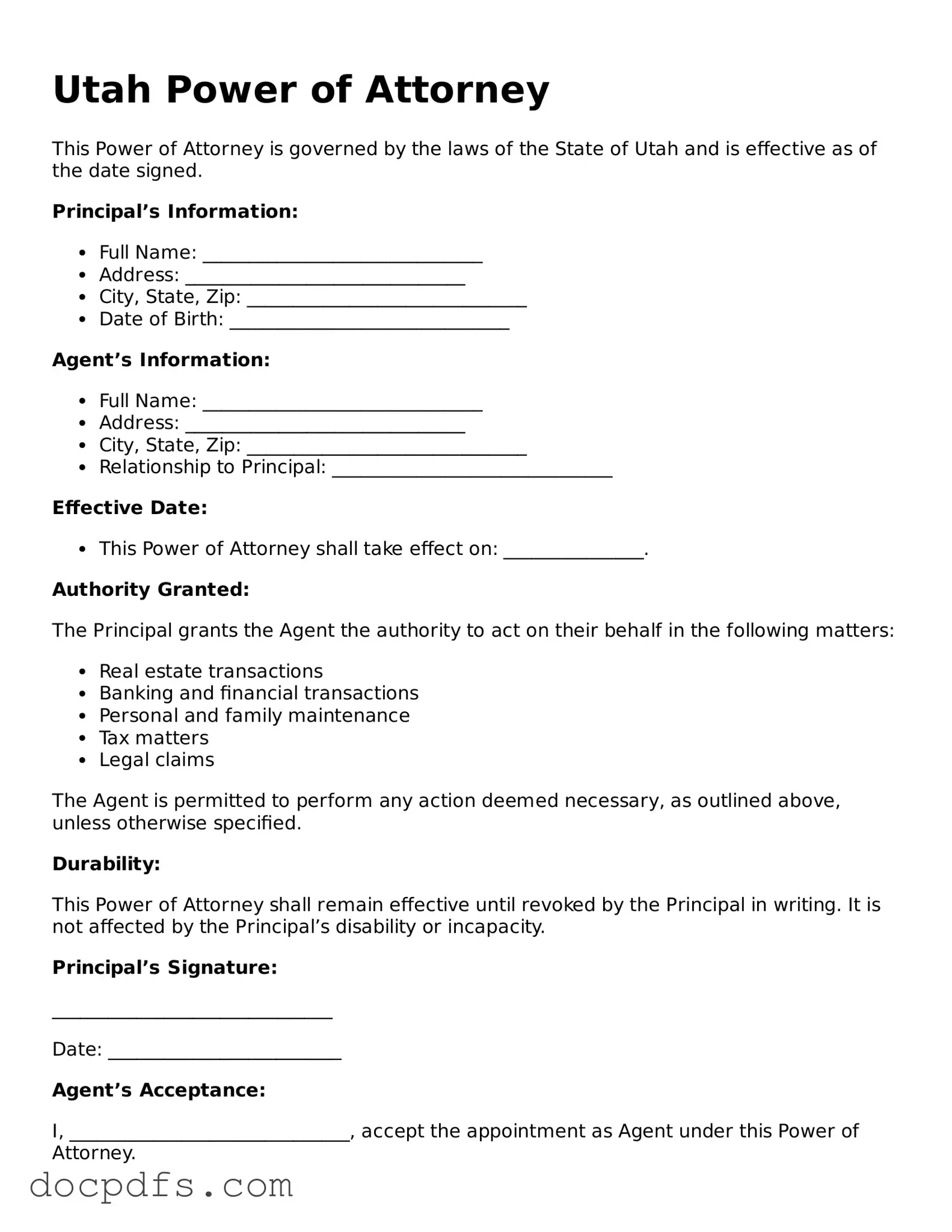Free Utah Power of Attorney Form
The Utah Power of Attorney form is a legal document that allows an individual, known as the principal, to designate another person, referred to as the agent, to make decisions on their behalf. This form is essential for managing financial, medical, or legal matters when the principal is unable to do so themselves. Understanding the nuances of this document can empower individuals to ensure their preferences are honored in critical situations.
Open Power of Attorney Editor Now

Free Utah Power of Attorney Form
Open Power of Attorney Editor Now

Open Power of Attorney Editor Now
or
⇓ Power of Attorney
Finish this form the fast way
Complete Power of Attorney online with a smooth editing experience.